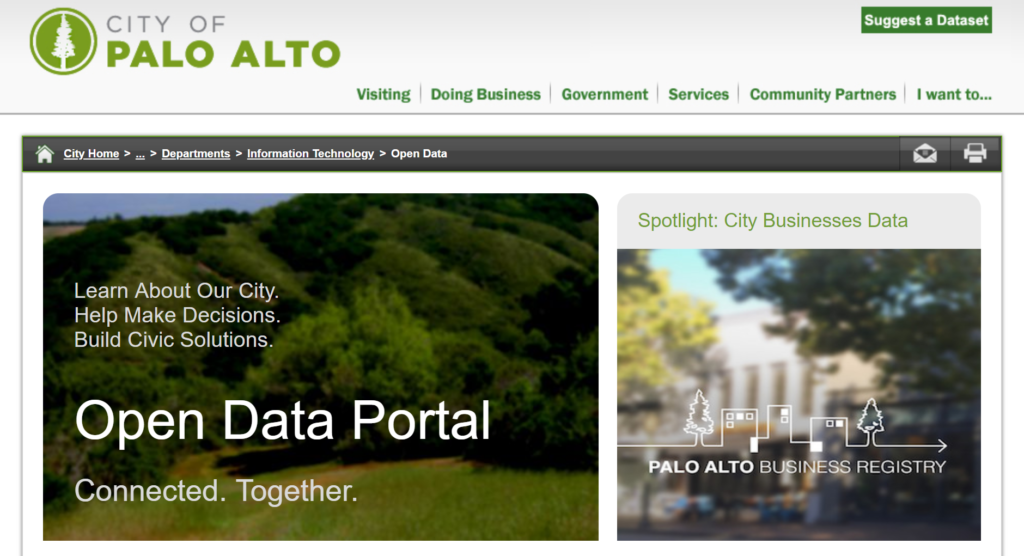By Tess Wittler
By 2020, global Smart City spending is expected to reach $34 billion, and by 2050, 70 percent of the world’s population will be located in a city.[1] So what is a Smart City?
The Smart City concept uses different types of data collection sensors to track information to manage assets and resources more efficiently. Some monitored items include traffic and transportation systems, air quality, waste management, hospitals, law enforcement, schools and libraries. The data collected from technology is then analyzed for making improvements and responding to challenges.
For instance, one of the biggest challenges cities contend with is traffic and congestion. The Smart City Challenge report estimates that 30 percent of urban congestion is caused by drivers looking for parking. A Smart City solution includes installing lighted sensors, like Park Assist®, to guide drivers in a quick and easy manner to parking spaces that are available in real time.
Why Are Smart Cities Important?
The current world population is 7.6 billion (July 2018) and growing at a rate of 1.09 percent per year, or estimated at 83 million people per year.[2] Currently half of the world’s population lives in an urban environment, with about 3 million people moving into cities every week.[3]
Over the next 20 years, that equates to approximately 20 billion more people living in cities, and according to Jonathan Reichental, Ph.D., chief information officer for the City of Palo Alto, cities are not well prepared for that. This is where technology can help.
Reichental explains that as we continue to use finite resources, such as fossil fuels and clean drinking water, and we create more waste, the challenges for cities rapidly change. Thus, we will need to think differently about how to address these complex issues while better meeting the needs of our citizens.
A Smarter, More Connected City
The City of Palo Alto has made it a point to invest in the infrastructure that makes it a smarter, more connected city. One of the innovations the city kicked off a few years ago was to make sure that the data they stored was available to anyone who wanted it – through an open data portal. This, they say, allows others to contribute to finding the best solutions.

The Smart City Challenge
In December 2015, the U.S. Department of Transportation launched a Smart City Challenge – where mid-sized cities across America were asked to develop ideas for integrating first-of-its-kind transportation systems that use data and technology to help people and goods move more quickly, cheaply and efficiently. Of the 78 applicants, seven finalists were named: Austin, Columbus, Denver, Kansas City, Pittsburgh, Portland and San Francisco, with Columbus taking the top award.
Columbus (pop. 860,090) is the 15th largest city in the United States and the second-fastest growing city in the Midwest, after Chicago. As part of its award, Columbus received $40 million in funding from the U.S. Department of Transportation plus another $10 million from Vulcan, Inc. With the grant, the city plans to focus on bettering mobility and transportation for its residents and visitors.
In a Fox News interview, Jordan Davis, director of smart cities at the Columbus Partnership, explained that the city wants to address these areas because faults in their systems result “in hundreds of deaths a year in our city.” Specific initiatives include:
- Using integrated data exchange (IDE) to collect data from sensors installed on traffic lights to determine which intersections are prone to accidents.
- Installing parking sensors (as noted above) to help ease urban congestion.
- Implementing dedicated short-range communication (DSRC), which uses a special FCC-approved frequency that allows vehicles to communicate directly with each other. One benefit of cars equipped with the DSRC is avoiding accidents, particularly T-Bone collisions that often happen in the city.
- Installing radars, cameras and LED lights to enhance safety throughout neighborhoods.[4]
Smart City Initiatives 2.0
To learn more, visit the Smart Cities Council® website or plan to attend Smart Cities Week® in Washington, D.C., October 2-4, 2018.
Other Smart City Tech Grant recipients include Birmingham, AL; Las Vegas, NV; Louisville/Jefferson County, KY; and the Commonwealth of Virginia. Each will receive mentoring and products/services to accelerate their Smart City initiatives.
Farther east, Cary, NC has been the hub of Smart City innovation over the past several years for its proactive approach to integrating technology – including traffic management, public safety, utilities, environmental protection and economic growth. In March 2018, the Smart Cities Council awarded Cary with one of five Tech Grants. According to Terry Yates, Smart Cities project manager, they plan to use the grant to implement a customer relationship management platform that creates a 360-degree view for integrating traffic networks, transportation and transit, so all that information is under one source.[5]
[1] Source: https://www.ces.tech/Topics/Internet-of-Things-(IoT)/Smart-Cities
[2] Source: http://www.worldometers.info/world-population/
[3] Source: https://youtu.be/nnyRZotnPSU
[4] Source: http://www.foxnews.com/tech/2017/07/10/columbus-under-construction-to-become-americas-first-smart-city.html
[5] Source: http://spectrumlocalnews.com/nc/triangle-sandhills/news/2018/06/08/tech-improvements-coming-to-town-of-cary

